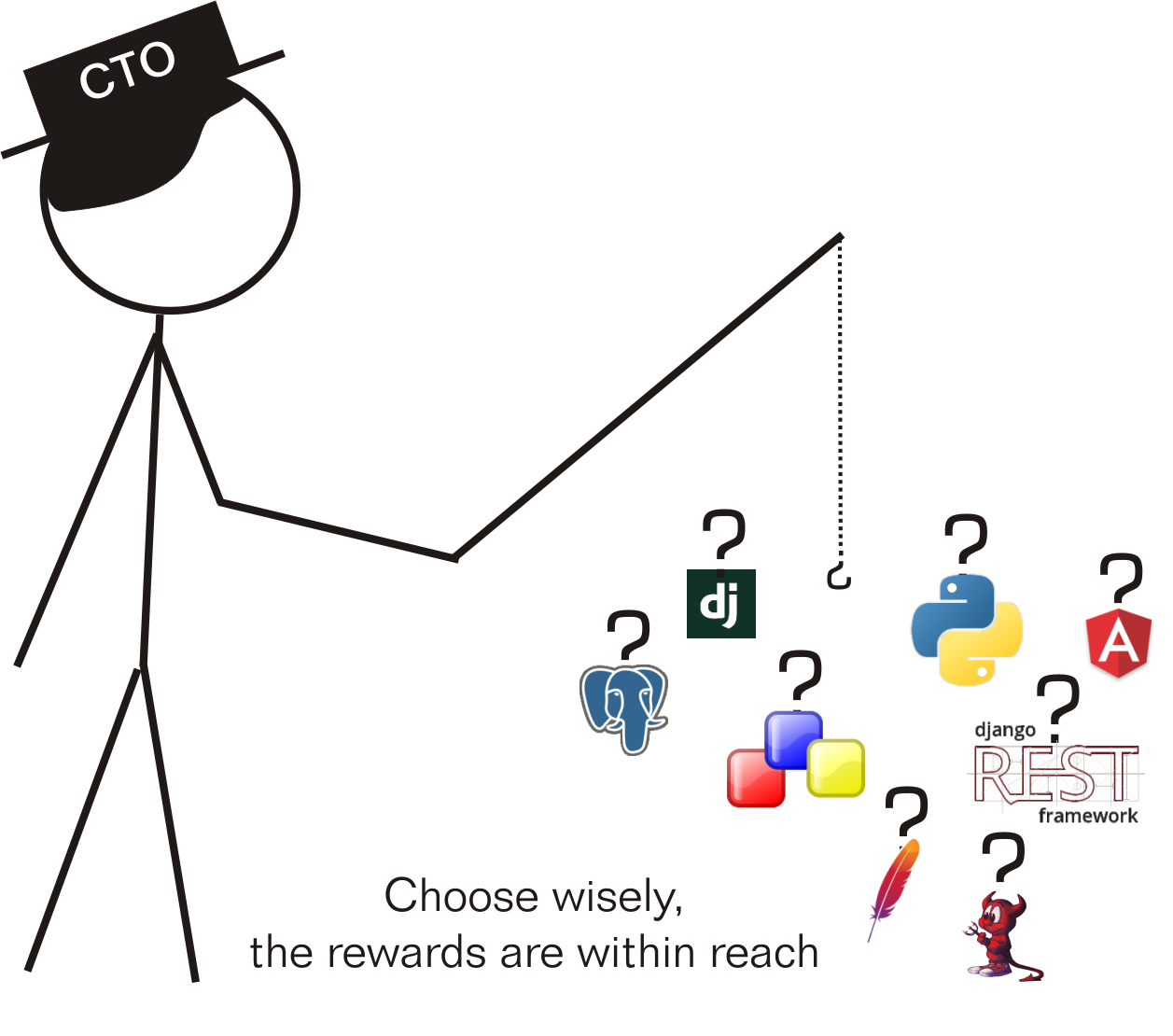What languages and frameworks are the most efficient for development?
It's easy to look at a list of most efficient languages then taking energy consumption as one metric we find that C is the most efficient with Java 5th at 1.98 and many others such as PHP at 29.3 and Python at 75 and pick the one of the most efficient and avoid the least. Easy but it would be short sighted.

- C 1.00
- Rust 1.03
- C++ 1.34
- Ada 1.70
- Java 1.98
Machines are cheap, and even with today's high energy prices, people and change are significantly more expensive. In addition to running costs, there's development time, developer productivity, team productivity, client engagement, and integration into the business.
Costs
Using API Development as an example from levels.fyi, a Median Total Compensation Package (50th Percentile) is about US$154,000; using 260 workdays a year that works out at about US$590 per day.
Although an Amazon EC2 comes with 750 hours per month for 12 months with the AWS Free Tier, using the AWS Pricing Calculator a t4g.xlarge linux instance with 4 vCPUs, 16Gb memory and 30Gb SSD storage costs about 72.76 USD/month in London and 133.27 USD in New York.
There are plenty of other charges that might apply, for example S3 and databases, but when considering application processing power per language, the resources are a few orders of magnitude smaller than staff costs.
Organisation
Organisation profiles matter! Startups move fast and need to deliver their solution asap, large established businesses tend to work on a much slower and more methodical pace, though there are always exceptions and large organisations often have departments with a startup mentality. It isn't so much Hare Vs Tortoise, so much as Horses for Courses.
People
People matter, and developers have both preferences, and experiences to add to the knowledge they learn over time. In the Stack Overflow 2021 survey, 41% of developers preferred Python and 68% JavaScript. As web frameworks make up a significant portion of development, it's interesting to note that there are a number of commonly used web frameworks with the highest percentage at only 42%; clearly there are many competing objectives and technology choices. With Python one of the most loved languages (68%) and the most wanted (19%) language for the fifth year in a row, it's clear the language and tools + ecosystem have a sustainable future, will continually improve, plus there will be a ready supply of developers to make the most use of them.
Although AWS dominates cloud platforms with 54%, there are alternatives and depending on requirements, local hosting may be an option.
Integration
If there's one thing to take away from the Stack Overflow survey, it's that, despite tech stacks in themselves being well integrated, there's a lot of integration across systems, and this is widely welcomed.
Conclusion
It depends. There are many different frameworks catering for the wide variety of choices, including technological, personal and existing business infrastructure. A sample of the variety and choices available can be seen from the Wikipedia comparison and articles on Software frameworks and Web frameworks.
Personal recommendation
I often recommend my own preferences of Django (13%) and the Django-ReST-Framework (unlisted) as Django is proven for both fast and scaleable development, and the d-r-f integrates well reducing development time and integration costs - they make a compelling combination and work equally well with anything that uses an API including React, Angular, and Vue. PostgreSQL is a high performance, low maintenance standard that scales far beyond most requirements.
"The web framework for perfectionists with deadlines." Django's primary goal is to ease the creation of complex, database-driven websites. The framework emphasizes reusability and "pluggability" of components, less code, low coupling, rapid development, and the principle of don't repeat yourself.
YMMV
Addendum
Since the energy consumption table compiled in 2018, Python has significantly increased performance and so energy consumption will be lower. Also as the text notes three out of five manipulating strings with regular expressions are best performed by interpreted languages; Python is proud of the efficiency and ease of use of its regular expression library and there are a number of significant libraries that use this to their advantage.